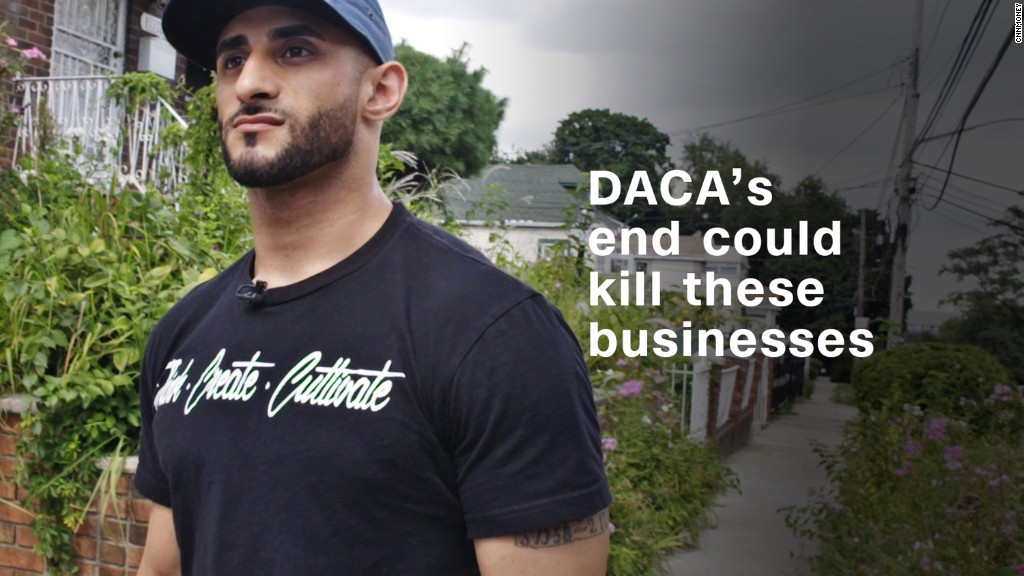
When Diego Corzo got DACA status six years ago, one of the first things he thought about was buying a home.
"It was very important to me," said Corzo, 27, who has never left the United States since arriving from Peru at age 9.
"Owning my own house proved to me that despite all of the odds stacked against Dreamers like me, I was still pursuing this ultimate American Dream," he said.
One of his biggest fears now is losing his home if the Deferred Action for Childhood Arrivals program ends permanently. If that happens, Corzo could lose not only the first home he bought as a Dreamer, but a second home he owns which he calls his "dream home," and six other rental properties that he also owns and manages.
DACA has allowed nearly 689,000 Dreamers, who were brought to the United States as children, to openly attend school and get work permits and driver's licenses. The program allowed many Dreamers to come out of the shadow economy and apply for mortgages and buy homes -- the pinnacle of the American Dream.
"Without a job, I won't be able to pay my mortgage and my home would go into foreclosure," said Corzo, whose DACA status expires in 2019.
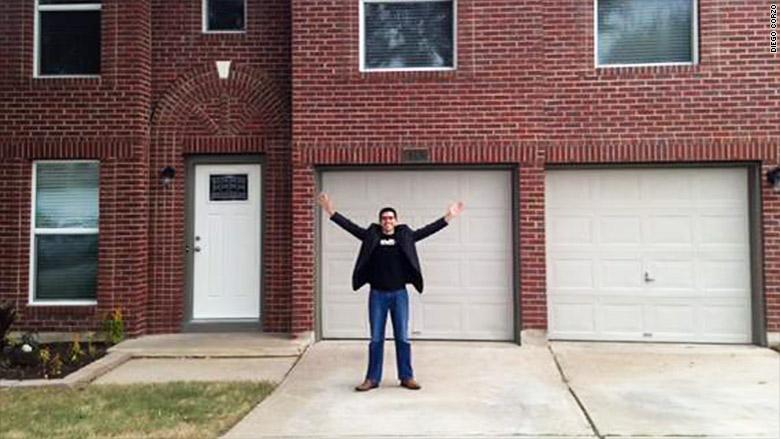
President Trump announced in September that he would end DACA but left it to Congress to pass alternative legislation before the Obama-era program expires on March 5. But lawmakers and the Trump administration have been unable to move forward.
If DACA expires, it means that every day for the next two years 915 DACA holders, on average, will lose their ability to work and their protection from deportation.
Related: America's biggest businesses are standing by their Dreamer employees
It's not exactly clear how many DACA holders own homes. A survey of more than 3,000 DACA individuals in 46 states showed that 15%, age 25 and older, own a home. That research was conducted jointly last August by the University of California, San Diego, and partner organizations including the National Immigration Law Center and the Center for American Progress.
Corzo, who also co-owns a real estate franchise in Austin, estimates that in his experience 95% of DACA homeowners have mortgages.
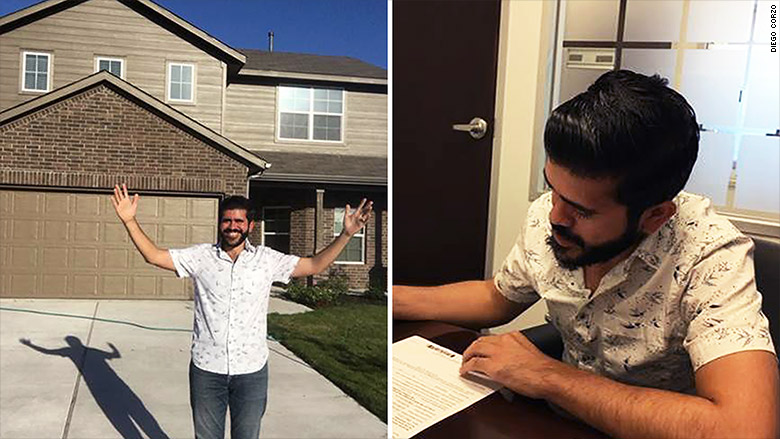
When Corzo got DACA status, he applied for a home loan of $160,000. "At the time, I was working as a software developer with General Motors in Austin, and renting. It took me a year to build credit first," he said.
Cleared for the loan, he bought his first home -- four bedrooms with red brick facade -- in November 2014. Three years later, Corzo acquired a second house. He rents out his starter home.
He runs his real estate business through his home office and manages six rental properties he owns in Florida.
Corzo believes Dreamers who own homes are boosting the economy. "We pay the lender, we pay the home inspector, we pay the contractor and handyman," he said.
Alex Nowrasteh, immigration policy analyst at the Cato Institute, agrees.
"If the government pushed Dreamers out of the housing market, the rental market, and ultimately out of the country, there could be a substantial decline in the housing prices where they live especially in large numbers," he said.
In order to qualify for DACA, Dreamers must at a minimum have a high school degree but many also go on to college, said Randy Capps, director of research for U.S. programs at the Migration Policy Institute.
"They are a group who then take advantage of their higher education to get higher wages, professional jobs, buy homes, cars and stimulate the economy," Capps said.
Related: Who is covered by DACA? Teachers, caregivers and more
Juan Mendez, 28, also wanted to be a homeowner but feared taking out a mortgage because of his DACA status.
"I thought if DACA was rescinded at any time, I would be in a very bad situation with the loan," said Mendez, who is a health and wellness specialist at Walmart (WMT). His DACA status expires early next year.
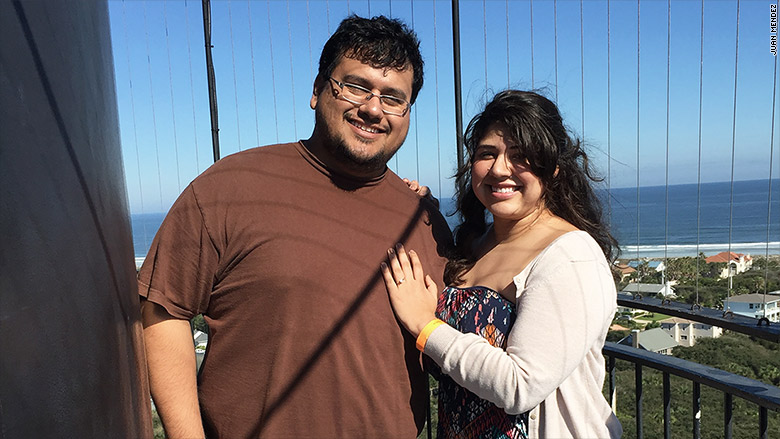
Instead, he decided to buy land in Springdale, Arkansas, where he lives and works, from a friend who lent him the money.
"My friend knew my status but he also saw my drive and gave me an opportunity to achieve my American Dream," he said.
Mendez and his wife, who is also a Dreamer, are building their house on that land.
The project has been a labor of love and fiscal restraint, he said.
"We set up a budget and we're both fiscally conservative," he said. "It hasn't been cheap or easy." To save money, Mendez and his wife laid the flooring and installed cabinets, windows and doors by themselves. They have invested $26,000 so far.
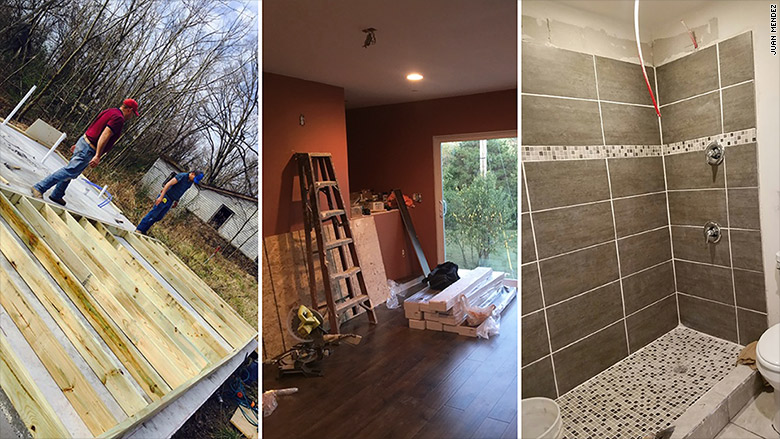
"We're still working on the exterior while we live in it," he said.
If he permanently loses DACA protection and with it the ability to work, Mendez said he'll struggle to pay off the loan from his friend, plus he might not have enough to pay his property taxes or utilities.
"My house is my source of pride. But it will become my biggest burden," he said. "I would hope President Trump, with his background in real estate, understands. Dreamers may be a drop in the bucket but we are doing our part as homeowners to stimulate the economy."


